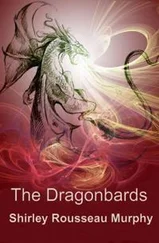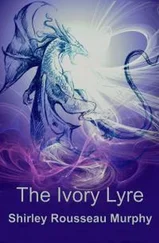At the first break of day the crow screams. There is a badger in the chicken run, and he doesn’t want it there. There are no chickens, and the crow wouldn’t care if there were, but he doesn’t want the badger in the chicken run.
Sarah Paddyfoot sits up in bed and looks out her window at the sky, just turning light, the moon still hanging there palely. We must get some chickens soon, thinks Sarah, give the old crow something to yell about. He might as well be of some use. He probably won’t yell then. Let the badger get all the chickens. Hmph. She gets out of bed and begins to think about breakfast. With such a racket, everyone will be up soon as you can say Scat.
She dips into the bucket of cold water standing on her orange-crate table, and has a good scrub.
Soon she is dressed and into the kitchen, muttering, “Blackberry jam; biscuits and blackberry jam; scrambled eggs. Wish we had some chickens. Must get that run fixed up. Free food, chickens are. No harm in that. Lord gave us chickens to feed us. Might as well use em!
“Taking the Lord’s name in vain, Sarah?” asks Mr. Tillman, coming into the kitchen.
“Nothing of the kind,” says Sarah. “Said the Lord gave us chickens to feed us. Might as well use ‘em.”
Glancing out the door at the still screaming crow, Mr. Tillman guesses who started this. “Not a bad idea, though,” he thinks aloud. “Got us a young lady to care for them now. S’pose she’s any good with chickens?”
“Sure I am,” says Karen, coming in. “I can take care of chickens. We’re not city children,” she says, preparing the way for Tom, who stands in the door behind her.
“No, sir, we’re not,” Tom says, “and I want to talk to you about that.” Tom waits. Mr. Tillman fills his coffee cup, looks at Tom, then goes out into the yard.
“Running away?” Mr. Tillman helps him.
“Yessir.”
“From your folks?”
“Oh, no, sir. Aunt and uncle.”
“Parents dead?”
“Yes, sir,” Tom says. “It was an uncle and aunt we were sent to live with. They’re the only relatives we have. I guess the next thing would have been a home.”
“What did they do?” asks Mr. Tillman. “Some reason you left, that’s sure.”
Tom looks grateful. “Drank,” he says. “Really drank, Mr. Tillman. For days.”
“I see,” says Mr. Tillman, lighting his pipe. “Will they look for you?”
“I don’t think so,” Tom says, and tells him about the note.
“Good thinking. Doesn’t look like there’s much to worry about now. Face school when we come to it. Think of something.”
“Then you don’t want us to leave?” Tom asks.
“Not on your life!” says Mr. Tillman. “Lose two good hands?” He grins at Tom, and bends to light his pipe.
“And there’s something else, sir,” continues Tom. “We came up the road from the south.”
“Yes?”
“Well, we stopped at a big ranch to ask for a job. Big white house and barn.”
“I know the place.”
“Do you know anything about it?”
“No, only where it is.” He looks questioningly at Tom.
“Well, there wasn’t a soul around when we got there. There were crops growing, all right, but no stock. We went back to the barn to look, thinking the people would return soon. We went in, and the barn was deserted, too, we thought, but then …” And Tom tells Mr. Tillman about the Sand Ponies, and about the strange behavior of the men.
“What do you think?” he asks when he is finished. “Do you think it was something illegal? Or were we just imagining it?”
Mr. Tillman draws on his pipe, gazing at the sea. “It does sound mighty funny,” he says finally. “One thing sure, the sheriff’s a good sort. Won’t hurt to tell him. If nothing’s wrong, no harm done. If something is, he’ll find out what.”
“But what about us? Won’t he wonder where we came from?”
“I don’t need to tell him anything about you two. He knows me. If I say I heard this, but can’t tell him where it came from, he won’t ask, Tom. He’s an honorable man.” He gets up, putting his hand lightly on Tom’s shoulder. “Smells like breakfast’s ready. Don’t you worry, Son. I’ll see that it’s all right. But I won’t tell him if you don’t want me to.”
Tom hesitates. “Yes, tell him. I wouldn’t feel right, not.” They go toward the willow tree, where Sarah is calling breakfast.
“It’s all right,” says Mr. Tillman, smiling at Karen. “Get us some chickens, you’ll have yourself part of a job, anyhow.”
Karen grins.
“Egg chickens or eating chickens?” shouts Jana, climbing down out of the tree.
“Some of both, I guess,” says Mr. Tillman.
“Roasting chickens! And a turkey!” she says.
“You won’t want a turkey,” John says, laughing. “Mean. Chase you all over the yard.”
“Wouldn’t dare!” says Jana.
“Oh, wouldn’t he?” John laughs and reaches up into the tree to grab a dangling foot. “Come on, Lisa, breakfast’s down here.” The feet come down, attached to a child, and they all find places at the table, the twins set securely at either side of their father.
“We’ll have to fix the chicken run,” John says, buttering a biscuit. “Needs new wire, and new lumber, too, in spots.”
“I can do that,” Karen offers, “with maybe some help putting on the wire.”
“I can hold the wire if you can hammer,” says Sarah Paddyfoot.
“I can hammer,” says Karen.
After breakfast, as Karen enters the barn, the sunlight is spilling through the back door, making the sawhorses and lumber look golden. For a minute she stands looking about her, and tries to imagine how the living room will look with windows where the door is, sun streaming in onto rugs and couch where sawhorses and tools now sit, the fireplace rising at the end, flanked by bookshelves. She begins to think about colors for the room, perhaps gold, the shade of the new wood, with a bit of orange the color of the nail boxes, a bit of blue the color of the sky.
Quite lost in planning it, she stands for a long time, dreaming. Only yesterday, she thinks, we were cold and hiding and had no home at all. And before that, it was worse. I hope we can stay here. I hope nothing happens to make us go back again.
The boys and Mr. Tillman are hard at work, and finally Karen picks up hammer and nails, scraps of board, and a handsaw, and goes to her own job, humming. From the kitchen comes a clatter as Sarah Paddyfoot washes dishes. In the willow tree the crow caws loudly, and old Bo pads out to growl softly at him.
So the children settle into the old barn, and soon it seems as if they have always been there. Sea breezes blow, grass ripples, plovers and sandpipers call; meadowlarks sing, gulls cry, and the crow watches and scolds.
Grain is put at the door every night, but the Sand Ponies do not come. “They know there is someone new,” says Mr. Tillman. “It will take a while. Meantime, that crow makes a pig of himself.”
Walls get built, windows cut, the bathroom is usable and nearly ready for paint. Berries are picked, clams dug, fish caught, cattails and other wild food gathered; wild onions and garlic perfume the kitchen. Now the barn is part barn, part house; part old silvered wood and part new lumber. It settles into a symphony of hammer rhythm, saws singing through board, gull cries, the voices of boys and the man, the laughter and quarreling of the twins. And always there is the raucous voice of the crow, the twins shouting back at him.
When the crow steals Jana’s locket the morning is shattered with caws and angry cries.
Jana, in order to try a swim in the old horse trough, has taken off all her clothes, and her precious locket as well, laying it on top. Lisa would have followed her, but she is away with Karen and Sarah Paddyfoot, picking berries.
Читать дальше
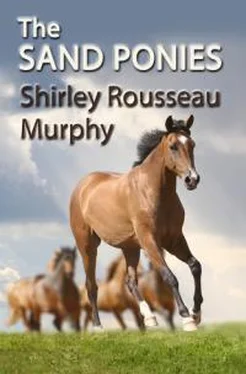
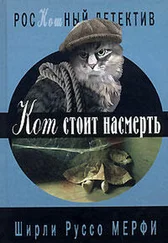
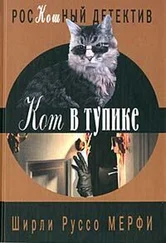
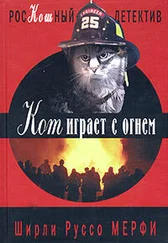

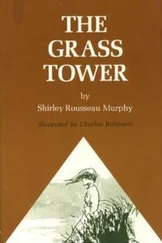
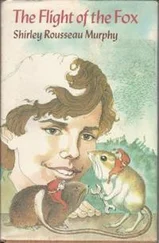
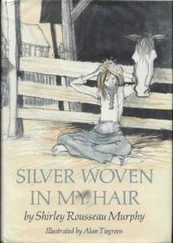
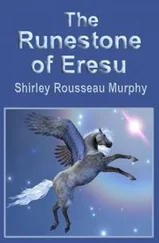
![Ширли Мерфи - The Shattered Stone [calibre]](/books/436059/shirli-merfi-the-shattered-stone-calibre-thumb.webp)
